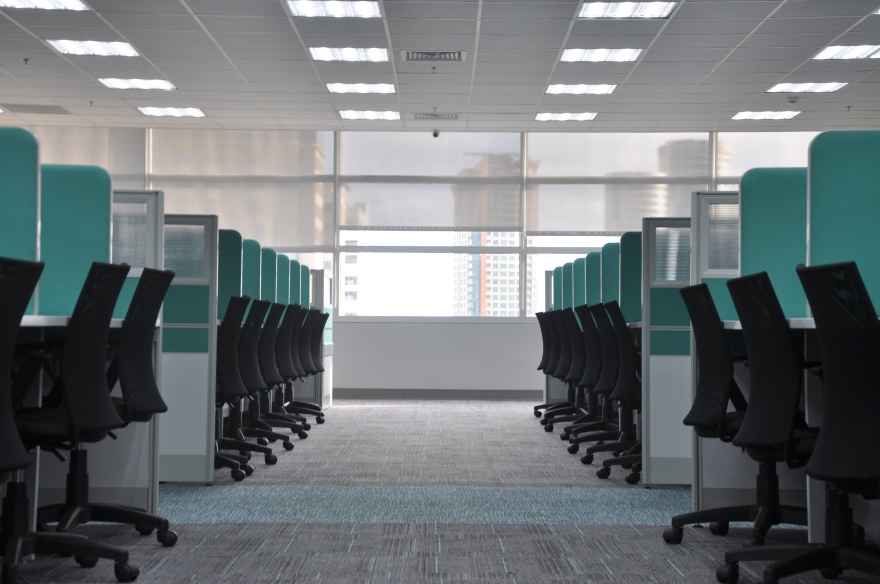In this article, we will discuss in detail how a room booking system for libraries is beneficial. But before we do that, let’s ponder why libraries need such a system.
Libraries have long been cherished as havens of knowledge and quiet study. They are an essential component of social cohesion.
If you walked into any library twenty years ago, you would see aisle after aisle of books and long wooden tables where people pulled up a chair to sit and read in quiet comfort.
However, in this digital age, libraries cannot afford to be just a place to borrow books or to read in silence.
Libraries now serve as collaborative spaces, fostering learning, innovation, and community engagement. With this evolution comes the need for efficient management of library spaces, particularly meeting and study rooms. Hence the need for a room booking system!
The Libraries Of The Future
Libraries are increasingly investing in digital technologies such as computers, tablets, and interactive kiosks to keep up with the demands of their patrons.
In addition to that, many libraries are transforming into activity-focused spaces. Event & Seminar rooms, meeting rooms with all the amenities of a corporate boardroom, pods, cubicles, and even spaces for workshops are now quite often a requirement.
You have to properly manage the usage of these spaces and resources. Unfortunately, if you visit many of the library facilities’ reservation websites, you will see they provide a highly manual means of making reservations.
This manual process for library management takes time away from more productive activities. Juggling and coordinating the reservation of library rooms and resources can become a nightmare as the volume of traffic increases along with the improvement in the library facilities.
Thankfully, a room booking system can vastly help in organizing this process and making it more efficient by automating several of the common tasks. Below, we have discussed how a room and resource booking system can benefit the different types of rooms and resources available in libraries.
Reservation of Pods
Pods are small spaces comprising 3 to 5 seats around a table for private discussions or group study and can be found in most school, college, and university libraries. Those students and freelancers who want to collaborate or work on their group projects use pods.
As the examination time approaches, these study pods become highly sought after. Problems such as pod hogging or one person occupying the pod can result in a waste of space.
Business rules such as a minimum number of participants to reserve a pod, scanning of a QR-code on the pod to see its vacancy, having a quota system in place or the ability to view the availability before physically coming to the library can improve the usage of these pods and provide everyone with an equal opportunity to use them.
Meeting Rooms
Nowadays, meeting rooms have become a permanent fixture of libraries. These rooms are usually equipped with projectors, large screen TVs, video conferencing equipment, digital write-boards, and other amenities that can compare to any corporate boardroom.
Meeting Rooms provide a source of alternative revenue for the libraries when they rent them out on an hourly charge basis for the public. A suitable room booking system can allow people to search, reserve and make payments directly online.
Event & Seminar Rooms
Event & Seminar rooms are large spaces for community-related activities. They are frequently used by speakers, for group reading sessions, and even by meditation and yoga instructors. These are very popular amongst professionals who would like to hold events for a group of people.
Event booking can be a combination of managing the reservation of the event from the organizer’s side as well as the publication of the event to the general public for them to register and attend.
Events require a lot of planning and coordination that becomes complicated when done through phone, fax, and email. When you book an event, you also need to manage resources such as projectors, AV, lighting, catering, seating arrangements, etc. When you properly coordinate event-related activities, the management of attendees becomes much simpler.
Computers
Computers have become a de facto necessity in the library. People use them to consume digital text or simply surf the net for research.
Since computers are a common resource, you must manage them so that everyone gets an equal opportunity to use them. You can impose business rules such as fixed timings and limited extension times. You can even have quotas to help distribute online time equally among patrons.
Wrapping It Up
The libraries of the future will look nothing like those twenty years ago. The library has transformed from a place of intellectual pursuit. It is now a place where community activities are held. As a result, digital technologies have become a necessity there.
A room and resource booking system can vastly help manage the rooms and resources in the library. Most libraries nowadays have some form of room booking system in place. However, you can do more to improve productivity and operational efficiency.
It is time that libraries moved away from downloadable PDFs and email submissions for room and resource reservations.
Embracing technology to manage library spaces not only meets the demands of the digital age but also strengthens the vital role of libraries in the community. As libraries continue to adapt and innovate, room booking systems prove to be an invaluable tool in their ongoing pursuit of excellence.





